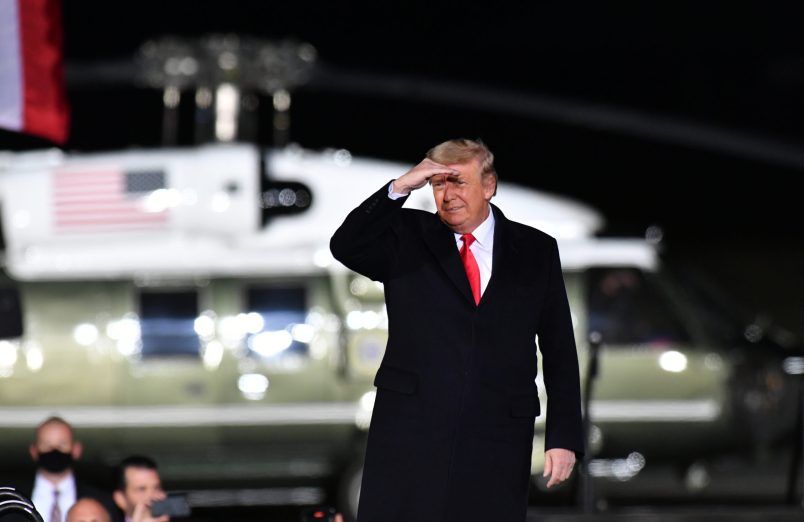President Trump knew that data supposedly showing voter fraud in the 2020 election was false, but signed a court document attesting to it regardless, a federal judge said on Wednesday.
U.S. District Judge David Carter for the Central District of California found that Trump likely lied to a Georgia federal court in December 2020, when he claimed that Fulton County had counted the votes of the dead, convicted felons, and unregistered voters.
Trump had already filed a lawsuit making the claims in Georgia state court.
But when the former President’s legal team began to consider moving the state court case to federal court, Trump attorney John Eastman realized that the data was flawed, Carter found.
“Although the President signed a verification for [the state court filing] back on Dec. 1, he has since been made aware that some of the allegations (and evidence proffered by the experts) has been inaccurate,” Eastman wrote in a Dec. 31, 2020 email cited by Carter. “For him to sign a new verification with that knowledge (and incorporation by reference) would not be accurate.”
Trump and his lawyers ended up filing the federal lawsuit with the faulty information anyway, Carter said. The judge remarked that the federal lawsuit was filed “without rectifying, clarifying, or otherwise changing” the incorrect data.
There was never any serious evidence to support Trump’s claims of voter fraud. But the clarity of Eastman’s remark that Trump signing a new verification based on the same claim “would not be accurate,” followed by Trump doing exactly that — signing a new verification — comes as yet another potential example of brazen lawlessness by the former President.
Carter added that Eastman’s message and other emails “show that President Trump knew that the specific numbers of voter fraud were wrong but continued to tout those numbers, both in court and to the public.”
Carter made the finding in an opinion filed in an ongoing lawsuit over a subpoena that the January 6 Committee issued to Eastman.
Eastman has argued that he should not have to turn over many of his records to the committee due to attorney-client privilege protections.
Carter has since found that while some of the materials are protected by attorney-client privilege, the actions of Eastman and his client, Trump, in the run-up to January 6 ran afoul of the law on two fronts: trying to disrupt congressional proceedings on January 6, and engaging in a conspiracy to defraud.
Carter has found, then, that at least some of Eastman’s messages can be released to the committee because they likely serve as evidence of a potential crime.
Carter ruled in March 2022 that Eastman and Trump likely committed obstruction of Congress in their effort to overturn the election results, describing Eastman’s efforts as “a coup in search of a legal theory.”



